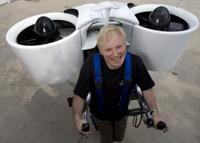-
Smiths Detection unveils new portable chemical detector
Earlier this month Smiths Detection unveiled its latest chemical detector, a portable device that combines high speed, high-resolution gas chromatography and a miniaturized toroidal ion trap mass spectrometer
-
-
Animal rights activists set fourteen cattle trucks ablaze

Earlier this month fourteen cattle-transportation trailers were set on fire at California’s largest feed yard by an animal rights group; following the attack, the Animal Liberation Front (ALF) released a statement that indicated an anonymous group of activists had executed the attack against the “horrors of factory farming”
-
-
U.S. Chamber of Commerce: ease immigration laws to stimulate economy
According to a recent report by the U.S. Chamber of Commerce, easing immigration policies will stimulate economic growth by encouraging more entrepreneurs from abroad to work in the United States
-
-
Lockheed delivers fourth upgraded P-3 to CBP
On Wednesday Lockheed Martin delivered a fourth upgraded P-3 Orion aircraft to U.S. Customs and Border Protection
-
-
First responders could be zipping through skies within two years

Glenn Martin, the inventor of the Martin Jetpack, the world’s first commercially available jetpack, recently spoke with Homeland Security NewsWire’s executive editor Eugene K. Chow; in their interview Martin discusses the technical challenges of developing a viable jetpack, its uses in emergency response, and when we can expect to see civilians zipping through the skies
-
-
Smart911 technology improves 9-1-1- response
Municipalities improve 9-1-1 response with Smart911; the technology allows individuals to use a Web site to enter emergency-relevant information they want emergency personnel answering a 9-1-1 call to have, including children’s photos, medical conditions, disabilities, home addresses of cellphone callers, or other rescue-related information
-
-
Infrastructure security market to see robust growth
A combination of ageing infrastructure, smart grid adoption, rising compliance and regulations, and utilities becoming a target for criminal exploitation has created a robust growth in the utility infrastructure security market
-
-
Booz Allen calls for greater critical infrastructure investment
In advance of President Obama’s State of the Union Address, defense contractor Booz Allen is urging the president to focus on critical infrastructure investment
-
-
U.S. drug shortages a threat to public health, patient care
Shortages in the United States of key drugs used to fight infections represent a public health emergency and can put patients at risk; frequent anti-infective shortages can substantially alter clinical care and may lead to worse outcomes for patients
-
-
2012 business worries
Businesses list the threats they are most concerned about in 2012; leading the list: unplanned IT and telecom outages, data breaches, and adverse weather
-
-
Mysterious flotsam in Gulf came from Deepwater Horizon rig
Scientists track debris from damaged oil rigs, helping forecast coastal impacts in the future
-
-
2011: costliest ever year for earthquakes, weather-related disasters

A sequence of devastating earthquakes and a large number of weather-related catastrophes made 2011 the costliest year ever in terms of natural catastrophe losses; at about $380 billion, global economic losses were nearly two-thirds higher than in 2005, the previous record year with losses of $ 220 billion
-
-
Taser International reports orders by law enforcement

Quibbles about the use of taser guns notwithstanding, figures released by Taser International show that police departments around the United States continue to favor the company’s stun guns, and also other law enforcement gear the company offers
-
-
New portable chemical detector for military, first responders
New, portable chemical detector for the military and emergency response can quickly and accurately confirm the presence and identity of chemical warfare agents and toxic industrial chemicals in gases, vapors, liquids, and solids
-
-
Cross-border security application integrates data from diverse sources
An application unites data from local, regional, and federal public safety agencies in a common operating picture; the data is integrated with feeds available from Web sources (weather, road and air traffic, nautical conditions), and displays the data on an interactive map and timeline
-
- All
- Regional
- Water
- Biometrics
- Borders/Immig
- Business
- Cybersecurity
- Detection
- Disasters
- Government
- Infrastructure
- International
- Public health
- Public Safety
- Communication interoperabillity
- Emergency services
- Emergency medical services
- Fire
- First response
- IEDs
- Law Enforcement
- Law Enforcement Technology
- Military technology
- Nonlethal weapons
- Nuclear weapons
- Personal protection equipment
- Police
- Notification /alert systems
- Situational awareness
- Weapons systems
- Sci-Tech
- Sector Reports
- Surveillance
- Transportation
Advertising & Marketing: advertise@newswirepubs.com
Editorial: editor@newswirepubs.com
General: info@newswirepubs.com
2010-2011 © News Wire Publications, LLC News Wire Publications, LLC
220 Old Country Road | Suite 200 | Mineola | New York | 11501
Permissions and Policies
Editorial: editor@newswirepubs.com
General: info@newswirepubs.com
2010-2011 © News Wire Publications, LLC News Wire Publications, LLC
220 Old Country Road | Suite 200 | Mineola | New York | 11501
Permissions and Policies
